ASSOCIATE OF SCIENCE DEGREE IN PRACTICAL NURSING
| Award: Associate of Science Degree in Practical Nursing | |
| Program #: PN-3 |
Associate of Science in Practical Nursing Total Program
| Total Wks Total: | 80 |
| Clock Hrs Total: | 1758 |
| Credit Hrs: | 90 |
For more information: 2025.05.01.anho.catalog
Program Outcomes:
1) To prepare students to meet the requirements of the Florida Department of Health, Board of Nursing for Practical Nurse Education and eligibility for licensing exams,
2) To prepare students to work as Practical Nurses in a variety of settings in a safe and effective manner,
3) To prepare students to be well prepared to serve their fellow man/woman consistent with the role and scope of practice for Practical Nursing according to the current State of Florida Nurse Practice Act,
4) To obtain Critical Thinking Skills and Work Readiness for the field of Practical Nursing
5) To obtain the General Education Courses required of an Associate of Science Degree so that students may continue to further their education and/or advance in the health care field. After satisfactory completion of this program, students are eligible to take the NCLEX-PN Examination
This program will include 16 semester credit hours in the following General Education Courses: College Algebra, Communications, Intro to Psychology, College Writing, and Biology (Micro).
In addition to the General Education Course, this program will include 74.1 credit hours/1518 clock hours of laboratory, classroom and clinical practice for students wishing to be prepared to pass the National Licensing Exams for Practical Nurses and to be well prepared to serve their fellow men and women as Practical Nurses. The knowledge and skills taught are consistent with the role and scope of practice defined by the Florida Board of Nursing and are to be performed under the direction and guidance of a Registered Nurse, a licensed Physician, a licensed Osteopathic Physician, a licensed Podiatrist or a Licensed Dentist. This program is offered utilizing a non-traditional integrated curriculum designed to enhance students understanding and practical application of knowledge from the less complex and building to more complex concepts. It includes education in the areas of Medical/Surgical Nursing, as well as the special and unique nursing care needs of pediatric, obstetrical and geriatric patients. It includes nursing care skills and applications needed for a variety of settings such as acute, long term, and care in the home. It will cover such topics as the vocational role and functions for the Practical Nurse, Foundations and Fundamentals of Nursing Care, Infection control, Body Structure and Function, Human Growth and Development, Personal and Family Care in Multiple Environments, Mental Health Concepts, Nutrition, Pharmacology and Medicine Administration, Ethical and Legal Aspects of Practice, Interpersonal Relationships, Current Issues and Employability Skills. Students will be guided to be aware of the importance of lifelong learning, taking responsibility for learning and to use critical thinking skills via the SCANS model. Remediation opportunities will be made available and encouraged throughout the program. The State of Florida approved Curriculum Framework and Performance Standards for Practical Nurses are applied throughout. National Patient Safety Standards and Quality Measures are incorporated throughout.
Upon successful completion of this program, graduates must pass the Florida Board of Nursing Exam for Licensed Practical Nurse.
Program Learning Outcomes
-
Patient-Centered Care– Recognize the patient or designee as the source of control and fullpartner in providing compassionate and coordinated care based on respect for patient’spreferences, values, and needs.
-
Teamwork and Collaboration– Function effectively within nursing and inter-professionalteams, fostering open communication, mutual respect, and shared decision-making toachieve quality patient care.
-
Evidence Based Practice– Integrate best current evidence with clinical expertise andpatient/family preferences and values for delivery of optimal health care.
-
Quality Improvement– Use data to monitor the outcomes of care processes and useimprovement methods to design and test changes to continuously improve the quality andsafety of health care systems.
-
Safety– Minimizes risk of harm to patients and providers through both system effectivenessand individual performance.
-
Informatics– Use information and technology to communicate, manage knowledge
For more information: 2025.05.01.anho.catalog
